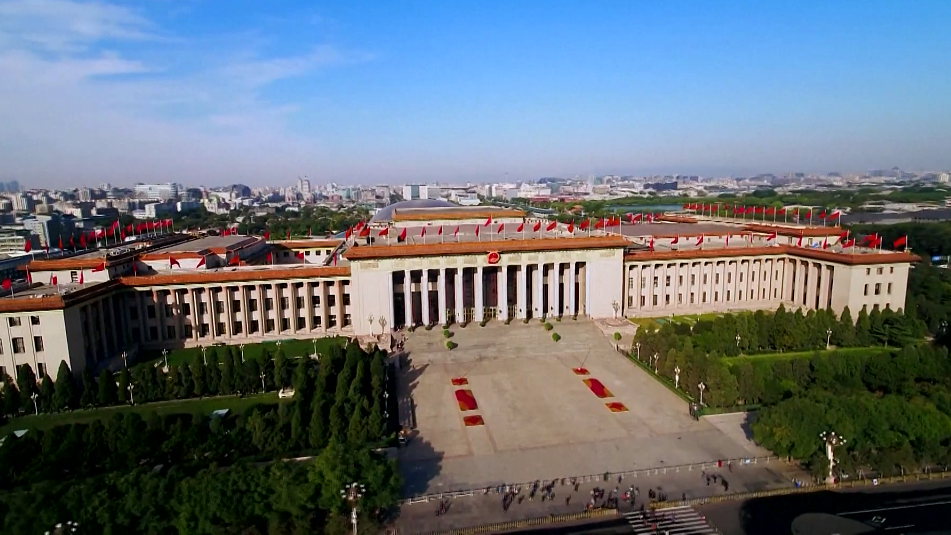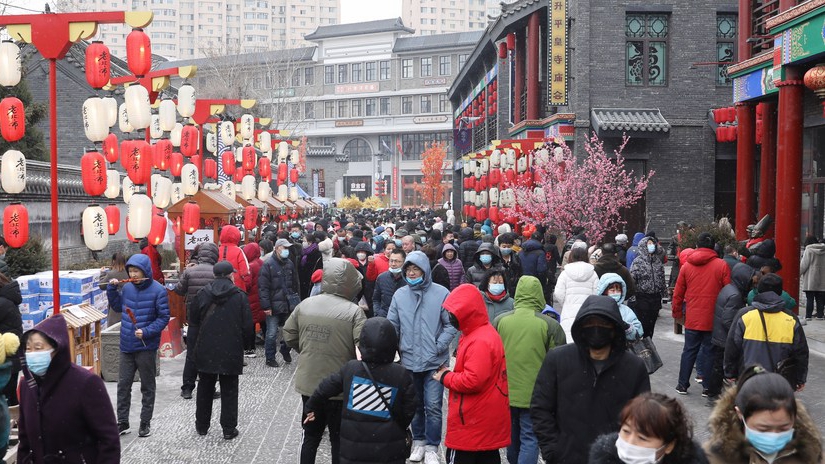
The Great Hall of the People in Beijing, China. /CFP
The Great Hall of the People in Beijing, China. /CFP
Editor's note: Bojana Pavlovic is the Director of the China Studies Centre at the University of East Sarajevo in Bosnia and Herzegovina. The article reflects the author's opinions and not necessarily the views of CGTN.
The liberal democracy model of the West could not work so easily in China, not as a directly-replicated model. Many scholars have already debated this topic for quite a while. Here, I would like to share a somewhat historical perspective.
This perspective is not necessarily new, but I hope it will reach non-scholars, students, young people and the general public, especially those who are not familiar with China, its history or culture but are for different reasons interested in it, be it that they hear about it in the news or that they study China, its language or its culture.
It was John King Fairbank, a well-known American historian of China, who stated that, "The fact that Chinese history is best known in China, just as Western history is best known in America and Europe, creates discordant perspectives between China and the outside world."
Just like history, culture and civilization – as well as their characteristics and models of functioning – cannot simply and directly be compared. Democracy, as an heir of Western civilization, functions in a similar way. It is a product of that civilization, the context of its historical development and circumstances, and inherits Western thought, its ethics, philosophy and so on. As, such, its models cannot just simply be copy-pasted onto what is not only a different culture, but a different civilization.
To that, I would like to add that we are finally in a time where we can talk about different civilizations as equally-standing on the world stage despite the fact that in the West and its societies, we still can very much see the remains of colonial, Euro-centric ways of thinking evident from the media to educational systems.
The Western system is the descendent of a historical development beginning with Athenian democracy and its institutions (limited in their scope, but still existing), and later from the Magna Carta where the power of the king began to be restricted in European and Western history.
Chinese institutions of government and regulations of society, and the very model of the Chinese system as it is currently known, was historically formed under Confucian principles, with institutions of bureaucratic administration, record-keeping, selection of officials by merit on the basis of examinations, etc. It was developed under the collective values and cultural traits of China.

People visit the Old North Market during the Lunar New Year holiday in Shenyang, northeast China's Liaoning Province, February 14, 2021. /Xinhua
People visit the Old North Market during the Lunar New Year holiday in Shenyang, northeast China's Liaoning Province, February 14, 2021. /Xinhua
For example, the main difference between Western societies and China lies in the center of the stage where the individual, in western societies, is exemplified by the concept of the "self-made man", as is the case in America. While on the other and, in Chinese society the identity of "self" is much more based and rooted in the concept that an individual is a part or member of a larger group, family or clan. The "duty towards the ancestors" in Chinese culture has always been crucial to Chinese identity.
These examples show the difference between the two civilizations, and prove that Western models of democracy, just like other descendants of Western civilization, cannot just be copy-pasted onto Chinese culture or other places.
And then we come to the formation of Chinese democracy and its values.
China, with an historically different model from the West, needs different principles of democracy. China, just like any other country, has the right to take time to further define and develop its own "whole process people's democracy."
But democracy and its development is an ever-continuing process, both in China and the West. Again, the Western model is also in a process of further development. And so is China. It is changing with the times, and with the changes that naturally occur in Chinese history and society. And because China has its own civilization, it has its own principles, and is further developing those principles. The critique here is that the West very often neglects cultural, civilizational and historical differences between societies.
China needs, and has the right, to develop and implement the principles that have already been formed. It also has the right to further develop new ones in accordance with its own situation, economy and societal development.
The obstacle by the West is that it does not understand the civilizational, cultural and historical differences, and that through different contexts different principles will be developed, which is a natural process. Therefore, it is not realistic for the West to expect of China to simply copy-paste principles of Western democracy.
(If you want to contribute and have specific expertise, please contact us at opinions@cgtn.com.)

